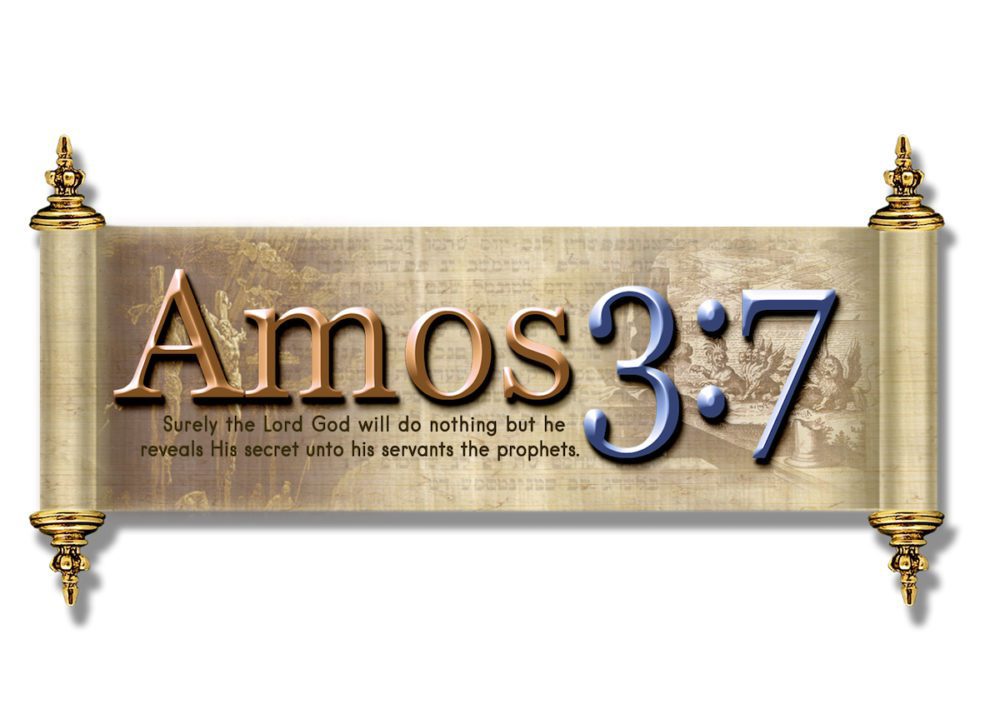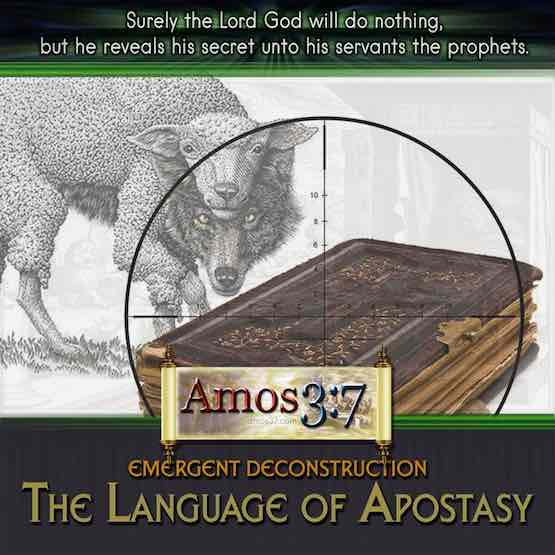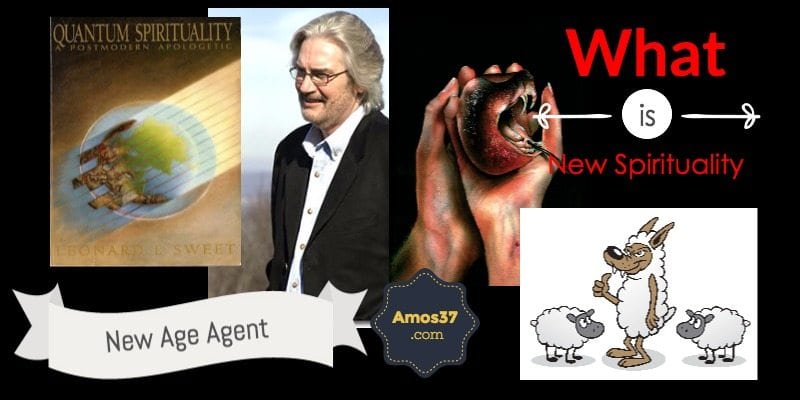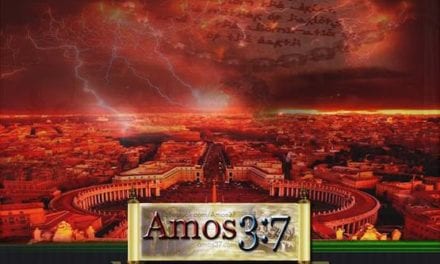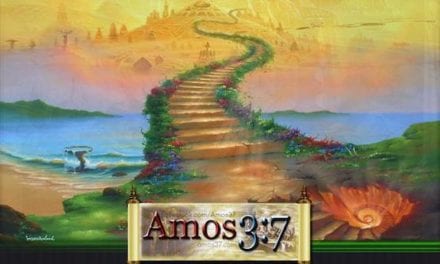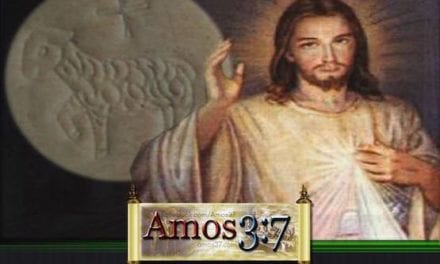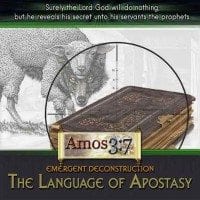 Postmodern liberalism, which has slithered into the Church with the Emergent movement, shares intellectual roots with fascism. One of the most popular postmodernist tendencies within aesthetics is deconstruction. Deconstruction is a postmodern and Emergent tactic of textual analysis, typically literary critique, that questions presuppositions, ideological underpinnings, hierarchical values and power structures within any given text. Deconstructive approaches apply techniques of close reading of the text without reference to information outside of the text or an authority over the text such as the author. One famous deconstructionist famously wrote, “There is nothing outside of the text.”1
Postmodern liberalism, which has slithered into the Church with the Emergent movement, shares intellectual roots with fascism. One of the most popular postmodernist tendencies within aesthetics is deconstruction. Deconstruction is a postmodern and Emergent tactic of textual analysis, typically literary critique, that questions presuppositions, ideological underpinnings, hierarchical values and power structures within any given text. Deconstructive approaches apply techniques of close reading of the text without reference to information outside of the text or an authority over the text such as the author. One famous deconstructionist famously wrote, “There is nothing outside of the text.”1
Emergent Deconstruction The Language of Apostasy A is for Abduction
For the time will come when they will not endure sound doctrine; but after their own lusts shall they heap to themselves teachers, having itching ears; And they shall turn away their ears from the truth, and shall be turned unto fables. 2 Timothy 4:1-7
A look at how Rick Warren, Leonard Sweet, Brian McLaren, Tony Jones, Tony Campolo and a host of Emergent Church leaders. Use the Language of Apostasy, echoing The Serpent (Genesis 3) “has God Said?” Godly men have warned a generation ago of these dreamer of dreams. See origins of Liberal Theology here.
Deconstruction ultimately questions all objective meaning and authority. Although deconstructions can be developed using various methods, the process typically involves demonstrating multiple possible readings of a text (the Bible in this case). For instance, Eric English of Emergent Village rails against the Bible as a postmodern deconstructionist saying, “The bible is not the WORD OF GOD.” Notice the lower case letter “b” in “bible.” English’s quote below epitomizes postmodern deconstruction speaking of the Church’s use of the Bible in terms of power structures and oppression:
The bible is not the WORD OF GOD. However, our elevation of the bible to almost divine status has seemingly resulted in the Church believing it is to be the moral authority over the world – as though they speak for God. We have equated the language of the bible with the Words of God. This has seemingly resulted in the bible being used as a weapon of power to oppress others. Incredibly, the Church’s oppression has not been limited to the secular world, but has even been used as a weapon to oppress its own people.2
This statement goes to show how deconstructionists can find anything they want to in the text they are deconstructing. The Holy Spirit, the ultimate Author behind the writers of Scripture, intended for the Bible to be called the Word of God since this definitive title is within the text itself. Paul thanked God for the Thessalonians who received the Apostles words “not as the word of men, but as it is in truth, the word of God” (1 Thessalonians 2:13). Notice Eric English does not quote from the Bible in order to present his argument. He concludes, “The bible is not the WORD OF GOD. The WORD OF GOD is Jesus Christ.”3 True, the Word of God is Jesus Christ. Jesus is the Word of God made flesh (John 1:1-14; Revelation 19:13). But this is not always the case and context we find in the Bible.4
[bctt tweet=”What is Deconstructionism? It is the original tool of Satan… has God said? See the root problem yet?” username=”@Amos37dotcom”]
In the Emergent movement, postmodernism emphasizes the role of language. Hence, the Emergent movement is often referred to as a conversation. Language appeals to the intellect but images appeal to the emotions. For this reason, language is deconstructed as a carrier of transcendent truth. Doug Pagitt takes on the role of the deconstructionist on his radio program when he attacks language to question the doctrine of hell. Pgitt says, “One of the reasons we have such a chronic argument about the issues of heaven and hell is that we don’t have a very effective way or set of language by which we can talk about these issues.” His co-host responds, “And we can only have the existing language which is faulty and inadequate to describe this big topic.” Pagitt concludes, “The language doesn’t allow us to convey a solution to the problem that our language creates.”5
Once language is deconstructed of its clear meaning, “truth” becomes experiential and subjective so that mystical practices are taught in the place of sound biblical doctrine. Since Emergents consider words to be inadequate to convey truth and meaning, mysticism provides for them an experienced truth rather than an understood truth.
This philosophy epitomized Fascist ideology and the Nazi worldview. In his book, The Deconstruction of Literature: Criticism After Auschwitz, author David Hirsch devotes an entire chapter linking postmodern deconstruction to the Nazi SS special police force. He writes:
Although postmodernists claim to be critical of the social ills of contemporary life . . . their ideology carries with it, inevitably, the less desirable tendencies of their patron saint, Heidegger. Their attack on the Cartesian human subject and on reason itself; their contempt for the values of liberalism, of human and individual rights, and of constitutional democracy; their elevation of abstract terminology above affective speech; their cultivation of an obscure vocabulary accessible only to votaries of the movement; their inability to hear voices other than their own . . . and their mocking of any notion of “transcendence,” while at the same time elevating their own ideas into a religion with a priesthood and a resurrected god . . .
The tendency among contemporary literary theorists . . . who are critical of postmodernist cliches, is to treat postmodernist literary theory in isolation from history as a movement grounded (either correctly or mistakenly) in a philosophical continuum stretching, essentially, from Kant through Hegel and Nietzsche to Marx and Heidegger and their followers. . . [P]ostmodernist literary theory and criticism does not make sense outside the context of what happened at Auschwitz.6
It can be clearly documented that the intellectual influence of the Emerging Church comes from these postmodern philosophers such as Martin Heidegger, Jacques Derrida, Michel Foucault and Richard Rorty. In The Routledge Companion to the Christian Church, the authors acknowledge that the academic influence on the Emerging Church movement includes the work of postmodern deconstructionists such as Michel Foucault and Jacques Derrida.7 Tony Jones also writes about how the Emergents are being influenced by these philosophies of Rorty, Derrida and Foucault.8
Jaques Derrida was a French philosopher of the 21st century. Among some of those who influenced Derrida were Friedrich Nietzsche, Soren Kierkegaard, Martin Heidegger and Karl Marx. Derrida developed the critical theory known as deconstruction associated with postmodernity. Derrida gave the following definition of deconstruction: “One of the definitions of what is called deconstruction would be the effort to take this limitless context into account, to pay the sharpest and broadest attention possible to context, and thus to an incessant movement of recontextualization.9
Deconstruction causes people to question everything. It asserts that we cannot know what the author had in mind when he or she wrote. To deconstructionist philosophers like Derrida, there is no inherent meaning, and the meaning is left to the interpretation of the reader. We must keep in mind with the Bible that the Holy Spirit inspired the text through God’s prophets and apostles with a clear message in mind, not of any private interpretation. Peter says, “Knowing this first, that no prophecy of the scripture is of any private interpretation. For the prophecy came not in old time by the will of man: but holy men of God spake as they were moved by the Holy Ghost” (2 Peter 1:20,21). Just as God spoke through these prophets of the Old Testament to communicate precisely what was on His heart and not their own private interpretations or origin, God’s word has an objective meaning that was intended by the Author. When deconstruction is applied to the Bible, it becomes confusion. But “God is not the author of confusion (1 Corinthians 14:33).
Martin Heidegger, one of the most influential philosophers of the 20th century, was famous for deconstruction. Again demonstrating that deconstruction cannot be understood outside of the context of the Jewish Holocaust, it is a known fact that Heidegger was also an ideologically dedicated Nazi.10 Paul de Man, another deconstructionist and intellectual friend of Derrida, wrote over 100 articles in a pro-Nazi newspaper called Le Soir, including several articles which were antisemitic.11 Deconstruction must be understood in this light because the Bible tells us that the strong delusion and reprobation of nations (as with Nazi Germany or other totalitarian fascist dictatorships) begins with the rejection of truth.12 Deconstruction, especially when applied to the Scriptures, results in a casting off of all transcendent morality and inevitably leads to utter rebellion and unrestrained evil.
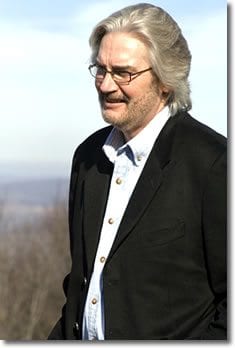 Though Emerging leader and author Leonard Sweet admits Heidegger’s “anti-Semitic and Nazi sympathies,”13 he writes of Heidegger in numerous books such as 11 Indispensable Relationships You Can’t Be Without, A is for Abductive, Nudge, Soultsunami, The Church in Emerging Culture, I am a Follower, and Postmodern Pilgrims. Leonard Sweet states:
Though Emerging leader and author Leonard Sweet admits Heidegger’s “anti-Semitic and Nazi sympathies,”13 he writes of Heidegger in numerous books such as 11 Indispensable Relationships You Can’t Be Without, A is for Abductive, Nudge, Soultsunami, The Church in Emerging Culture, I am a Follower, and Postmodern Pilgrims. Leonard Sweet states:
I collect Black Forest carvings and stories. Above the door to my study is a carved sign that reads, in German, “Peace and Joy to all who enter.” But I almost carved another sign in its place. It was reputedly carved above the front door of an old German schoolmaster: “Dante, Luther, Goethe, Barth, Heidegger live here.” None of them live there, of course. But this old schoolmaster had so lived in communion with their ideas and ideals that it seemed as if they all shared his humble home.14
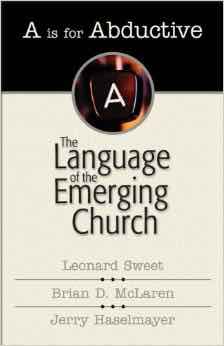 Sweet and Brian McLaren devote an entire chapter to postmodern deconstruction in their book A is For Abductive. In the chapter entitled “V is for Voice” they quote from Heidegger’s essay on Heraclitus and his take on the Logos.15 The authors state that deconstruction is “one of the most important philosophical/interpretive concepts of postmodernity.” They say that deconstruction “begins by questioning many of the assumptions of traditional interpretation.”16 They continue:
Sweet and Brian McLaren devote an entire chapter to postmodern deconstruction in their book A is For Abductive. In the chapter entitled “V is for Voice” they quote from Heidegger’s essay on Heraclitus and his take on the Logos.15 The authors state that deconstruction is “one of the most important philosophical/interpretive concepts of postmodernity.” They say that deconstruction “begins by questioning many of the assumptions of traditional interpretation.”16 They continue:
Traditional modern interpretation, then, is fond of finding the one “true” meaning in a text, while deconstructionists do not give any one reading privileged status, but rather are interested in hearing the interplay of many interpretations that arise from within many different interpretive communities.17
In the end, deconstruction gives the reader the authority over the text. When applied to Scripture, they can make it say whatever they want it to say! Rather than searching out the authorial intent of the Holy Ghost accompanied with the use of grammatical and historical analysis, Emergents write:
Traditional interpretation generally assumes a logical structure and deep coherence of texts; in other words, the author meant to say something sensible and did so in a coherent way. Deconstruction looks for points of inherent tension, contradiction, and incoherence.18
Emerging leader Doug Pagitt includes almost two identical sections in both of his books Preaching in the Inventive Age and Preaching Re-Imagined. In them he describes a conversation with his friend Michael who described Derrida’s words “as if Jesus himself had said these things.”19 Pagitt comments on Derrida saying:
This is a call to be prophetic in the deconstruction of the systems of power. When we are willing to notice, point out, and name the issues of power in our settings, we’re creating a better situation in which the gospel can be preached.20
Tony Jones also says:
What does this say about what we believe about God? In some ways, it seems, we were following the lead of Derrida and other postmodern deconstructionists in questioning the very premises of the Christianity that we had inherited.21
Tony Campolo, an Emergent author, sociologist, pastor and speaker, in his book Adventures in Missing the Point co-authored with Brian McLaren confesses the inherent dangers he sees in Brian McLaren for buying into this postmodern thinking:
Brian may have bought into postmodern thinking just a little bit too much for me. As I see it, Jacques Derrida, the famous postmodern deconstructionist philosopher, and his followers contend that the text of Scripture has no single interpretation; instead the Bible should be read as though it was a Rorschach test. They tell us to see in the text whatever meaning we want to impose on it. They tell us that no single interpretation should be considered objectively valid.22
Campolo rightly points out the error of postmodern thinking that the Bible does not have a single valid interpretation but multiple interpretations. How could we ever expect to find the valid meaning of the Bible if it is always changing depending on who is reading it and when. U2 frontman and Emergent icon Bono says,
I don’t read it as a historical book. I don’t read it as, “Well, that’s good advice.” I let it speak to me in other ways. They call it the rhema. It’s a hard word to translate from Greek, but it sort of means it changes in the moment you’re in. It seems to do that for me.”23
Even Emergent leader Tony Campolo realizes that postmodern deconstructionism is not conducive objective truth claims. Campolo concludes, “To me, that approach to the Bible has inherent dangers.”24 He is correct. Obviously, this postmodern tactic was an essential part of the fascist worldview which challenged all language as a carrier of transcendent moral truth and later resulted in the Holocaust. But these warnings of the inherent dangers of deconstructionism don’t stop Emergents from attacking language. Tony Jones states the following and quotes LeRon Shults’ anti-statement of faith:
Languages are culturally constructed symbol systems that enable humans to communicate by designating one finite reality in distinction from another. The truly infinite God of Christian faith is beyond all our linguistic grasping, as all the great theologians from Irenaeus to Calvin have insisted, and so the struggle to capture God in our finite propositional structures is nothing short of linguistic idolatry.25
In fact, the Emergent movement is guilty of idolatry by overthrowing the word of God with their own linguistic attack against the clear commands of Scripture. This fascist tactic of deconstruction can be traced even further back from Derrida and Heidegger to the Garden of Eden when the Serpent utilized the same radical questioning of God’s word, even by attacking God’s language. No doubt this diabolical tactic originated in the Garden of Eden with the Serpent as the first deconstructionist who questions God’s authoritative word. “Now the serpent was more subtil than any beast of the field which the LORD God had made. And he said unto the woman, Yea, hath God said, Ye shall not eat of every tree of the garden?” (Genesis 3:1).
In Emergent, questioning becomes the highest form of knowledge. The absurdity of deconstruction is that any given text may be given infinite interpretations. Again and again, the Emerging Church is finding ways to give communities more control over the meaning of God’s word. The Emergent method of deconstruction seeks to ridicule the ability of God and humans to communicate clearly through language, all the while they expect the readers of their books to understand what they mean through the use of conventional language. In other words, deconstruction is not convenient when applies to Emergent writings. It’s only useful to Emergents when applied to the Bible, religion, philosophy and morality. Concepts like deconstruction leave readers with limitless interpretations and questions. Deconstruction leads to “ever learning, and never able to come to the knowledge of the truth” (2 Timothy 3:7).
Notice, the serpent questioned God’s authoritative and understandable word to which Adam and Eve were to be held accountable: “Of every tree of the garden thou mayest freely eat: But of the tree of the knowledge of good and evil, thou shalt not eat of it: for in the day that thou eatest thereof thou shalt surely die” (Genesis 2:16,17). Just as with Adam, God gave a command, and He has spoken understandably and authoritatively in these last days through His Son Jesus Christ (Hebrews 1:1,2) by which we will all be held accountable to repent. “And the times of this ignorance God winked at; but now commandeth all men every where to repent: Because he hath appointed a day, in the which he will judge the world in righteousness by that man whom he hath ordained; whereof he hath given assurance unto all men, in that he hath raised him from the dead” (Acts 17:30,31).
How does such a sophisticated society become so horrific? According to the Bible, it is a disregard for truth that leads to spiritual breakdown and demoralization of a nation. The Bible says: “God shall send them strong delusion, that they should believe a lie: That they all might be damned who believed not the truth, but had pleasure in unrighteousness” (2 Thessalonians 2:11,12). “For the wrath of God is revealed from heaven against all ungodliness and unrighteousness of men, who hold the truth in unrighteousness” (Romans 1:18).
Certainly the postmodern climate in Western culture is paralleling pre-WWII fascist nations with their rejection of absolute truth. Postmodernity represents the exact same irrational philosophies that helped give rise to the most horrifically evil totalitarian fascist regimes of Italy, Spain and Germany in the 20th century. These irrational and deconstructive seeds and thoughts will inevitably lead to moral breakdown and apostasy in the church that will subsequently unleash a monster comparable to those fascist regimes of the 20th century unless Christians contend for the faith once delivered to the saints.
Just as postmodernism seek to refute traditional morality and fixed truth as a scam, the Nazis attack on Christianity was also part of a larger war on the idea of universal truth. As Hirsch points out, “[P]ostmodernist literary theory and criticism does not make sense outside the context of what happened at Auschwitz.”26 Postmodern liberalism, which has slithered into the Church, shares intellectual roots with fascism. Ideas have consequences. Postmodern Christianity is far from fascism, but the elements are visible and, this time, global!
Endnotes:
1 Jaques Derrida, Of Grammatology, trans. Gayatri Chakravorty Spivak (Baltimore: John Hopkins University Press, 1967), 159.
2 Eric English, “The Bible is NOT the WORD OF GOD: a polemic against Chistendom.” Emergent Village, April 9, 2013. available: http://www.patheos.com/blogs/emergentvillage/2013/04/the-bible-is-not-the-word-of-god-apolemic-against-christendom/.
3 Ibid.
4 For instance, in the Parable of the Sower, Jesus said, “Now the parable is this: The seed is the word of God” (Luke 8:11). “The Seed” referred to the preaching of the Word of God. In other words, the sower sowing seed is a preacher preaching the Word of God. Furthermore, Paul referred to the Old Testament Scriptures as “the Word of God” (Romans 9:6). Jesus also referred to the Old Testament Law and Prophets as the Word of God. Jesus said: “Full well ye reject the commandment of God, that ye may keep your own tradition. For Moses said, Honour thy father and thy mother; and, Whoso curseth father or mother, let him die the death: But ye say, If a man shall say to his father or mother, It is Corban, that is to say, a gift, by whatsoever thou mightest be profited by me; he shall be free. And ye suffer him no more to do ought for his father or his mother; Making the word of God of none effect through your tradition, which ye have delivered: and many such like things do ye.” (Mark 7:9-13); “It is written, That man shall not live by bread alone, but by every word of God.” (Luke 4:4); “Is it not written in your law, I said, Ye are gods? If he called them gods, unto whom the word of God came, and the scripture cannot be broken; Say ye of him, whom the Father hath sanctified, and sent into the world, Thou blasphemest; because I said, I am the Son of God?” (John 10:34-36)
5 “Doug Pagitt Radio | 3/6/11 | Heaven & Hell,” YouTube video, posted by Doug Pagitt, March 6, 2011, http://www.youtube.com/watch?v=d_i_fyuQVpE.
6 David Hirsch, The Deconstruction of Literature. Criticism After Auschwitz (Brown University Press, 1991), 161,164.
7 The Routledge Companion to the Christian Church (New York, NY: Routledge, 2008), 269.
8 Tony Jones, The New Christians (San Francisco, CA: Jossey-Boss, 2008), 41,43.
9 Jaques Derriada, Afterword in Limited Inc (Evanston, IL: Northwestern University Press, 1988), 136.
10 See Victor Farias. Heidegger and Nazism (Philidelphia, PA: Temple University Press), 1989.
11 James Atlas, “The Case of Paul De Man,” The New York Times, August 28, 1988, http://www.nytimes.com/1988/08/28/magazine/the-case-of-paul-de-man.html?pagewanted=all&src=pm.
12 2 Thessalonians 2:10,11 tells us “because they received not the love of the truth, that they might be saved. And for this cause God shall send them strong delusion.” Romans 1:18 states: “For the wrath of God is revealed from heaven against all ungodliness and unrighteousness of men, who hold the truth in unrighteousness.”
13 Leonard Sweet. 11 Indispensable Relationships You Can’t Be Without (Colorado Springs, CO: David C Cook, 2008), 197.
14 Leonard Sweet. “A Response to Recent Misunderstandings,” Leonard Sweet, http://www.leonardsweet.com/response.php.
15 Jerry Haselmayer, Brian McLaren and Leonard Sweet. A Is For Abductive – The Language of the Emerging Church (Grand Rapids, MI: Zonderan, 2003), 301.
16 Ibid., 87.
17 Ibid., 88.
18 Sweet,, A Is For Abductive. 87.
19 Doug Pagitt, Preaching in the Inventive Age, (Minneapolis, MN: Augsburg Fortress. 2011), 210.
20 Doug Pagitt, Preaching Re-Imagined.
21 Tony Jones, The New Christians (San Francisco, CA: Jossey-Bass, 2008), 47.
22 Tony Campolo and Brian McLaren, Adventures in Missing the Point, (Grand Rapids, MI: Zondervan, 2003), 89.
23 Jann S. Wenner, “The Rolling Stone Interview: Bono.” Rolling Stone, November 3, 2005, http://www.jannswenner.com/Archives/Bono.aspx.
24 Campolo and McLaren, Adventures in Missing the Point, 89.
25 Jones, The New Christians, 233, 234.
26 David Hirsch, The Deconstruction of Literature. Criticism After Auschwitz (Brown University Press, 1991), 161,164.
Connect with Amos37
Stay up to date with Amos37.com eMail update (Weekly)
Free Resources for the growing Christian.
“But grow in grace, and [in] the knowledge of our Lord and Saviour Jesus Christ. To Him [be] glory both now and for ever. Amen.” 2 Peter 3:18
Blue Letter Bible Free Online Bible & Study Tools & Commentaries
Bible Classes College Level For Free to Enroll Track your progress.
Our Own Free Discipleship Course In Video HD.
